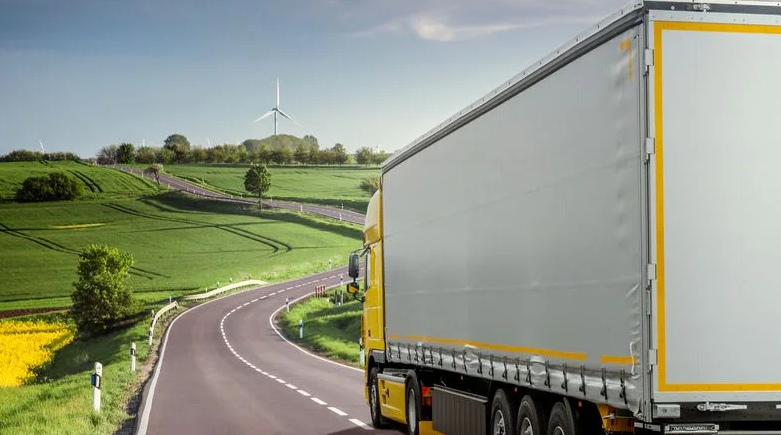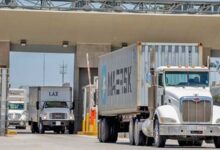On the Road to Innovation: Exclusive Interview with A1 Auto Transport on the Future of Heavy Equipment Logistics

Moving heavy equipment in today’s world is an amazing feat. Equipment that weighs hundreds of thousands of pounds is being transported daily across the globe.
But how do these items get to where they need to go and what does the future of heavy equipment logistics look like?
Today we’ll get into all that and more, with an interview from A1 Auto Transport.
Let’s get started.
A Sustainable Future
The biggest worry when doing any type of transport is its effect on the environment. Right now, it’s impossible to ship heavy equipment overseas solely on electric power. However, in the future, it may become a possibility.
That being said, it is possible to ship heavy equipment domestically only powered by electric vehicles. Tesla already has big rigs that are being deployed, and the entire industry is likely going to change throughout the years.
What is most interesting to think about is a ship that could run on electricity. Electric ships are already being worked on, as right now traditionally most ships are running on heavy fuel oil or diesel.
In the next 20-30 years, all transportation is likely required to change to electric by governments hoping to shift the damage that has already been done to planet Earth. With science on our side, anything is possible when it comes to creating a more sustainable future for heavy equipment logistics.
Utilizing AI
Artificial intelligence is becoming both a frightening reality but also an amazing helper. AI-planned routes can create efficiency that wasn’t thought possible. If you’ve ever seen an AI take control of vehicle traffic, vehicles can travel insanely fast speeds while being entirely calculated in the way they’re driven.
While this is a very distant future, if all vehicles and ships are utilizing AI to drive, then it can be concluded that the efficiency of heavy equipment logistics will advance rapidly. However, there is the risk of accidents, so until AI is without any bugs or any risk to humans, then this will take a lot of time.
Artificial intelligence is more than just ChatGPT these days, there are plenty of ways to utilize AI to help with any transport business. From the website where leads are brought in, to organizing routes, AI is going to have a huge helping hand in how the transport industry is shaped.
Rental Services
The heavy equipment industry is seeing a shift from ownership to rentals. Rentals can make it super easy for any business to start up right away, rather than incur hundreds of thousands of debt to buy heavy equipment.
With this in mind, this means that local transport companies will be utilized rather than shipping equipment worldwide. However, in special circumstances, if a piece of equipment is on the other side of the country, transport services will continue to help bring these machines from point A to point B.
Flexibility is huge, especially when it comes to businesses that are already strapped for cash. It is likely that fewer and fewer businesses own their equipment and solely rely on short-term leases.
Rentals also avoid the problem of owning heavy equipment and not having usage for it after the job is done. Instead of selling the equipment for a huge loss, you can simply rent and avoid any problems altogether.
That being said, heavy equipment owners will still need to rely on a heavy equipment shipping company to transfer their equipment to the short-term owners. As long as heavy equipment exists, the logistics around them will still need to be there to operate at a functional level.
Conclusion
The road to innovation in heavy equipment logistics is paved with exciting possibilities and transformative trends. The pressing need for sustainability is driving the industry towards cleaner and greener alternatives, with the potential emergence of electric-powered vehicles and ships in the foreseeable future.
The ongoing efforts by companies like Tesla to introduce electric big rigs reflect a commitment to reducing the environmental impact of heavy equipment transport.
Artificial intelligence is poised to play a pivotal role in reshaping the efficiency of logistics operations. While the full integration of AI into the driving systems of vehicles and ships may be a distant prospect, the promise of enhanced efficiency through AI-planned routes holds immense potential. As the technology matures and safety concerns are addressed, AI is likely to revolutionize how heavy equipment logistics are managed, offering unprecedented speed and precision.
Moreover, the shift from equipment ownership to rental services signifies a pragmatic approach to resource utilization in the industry. The flexibility provided by short-term leases allows businesses to adapt to their specific needs without incurring the substantial costs associated with ownership. This trend towards rentals is expected to foster the growth of local transport companies, emphasizing convenience and cost-effectiveness.






